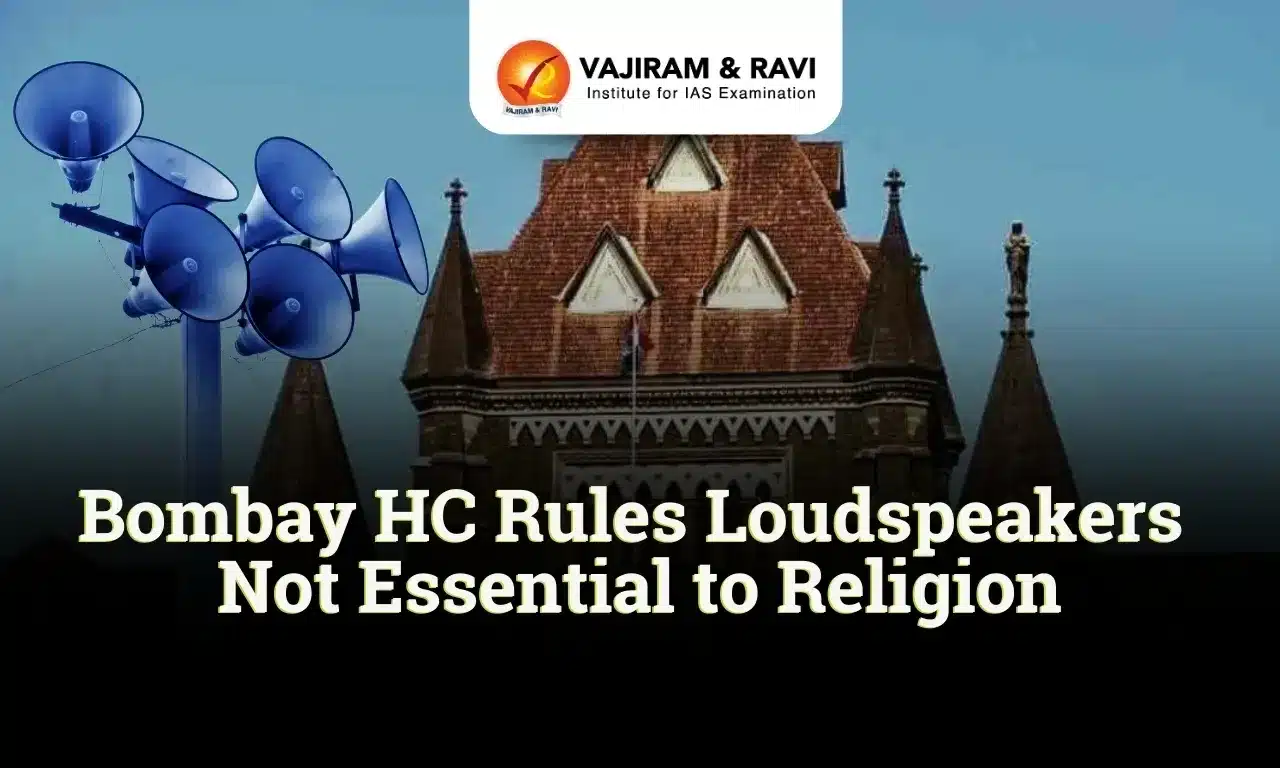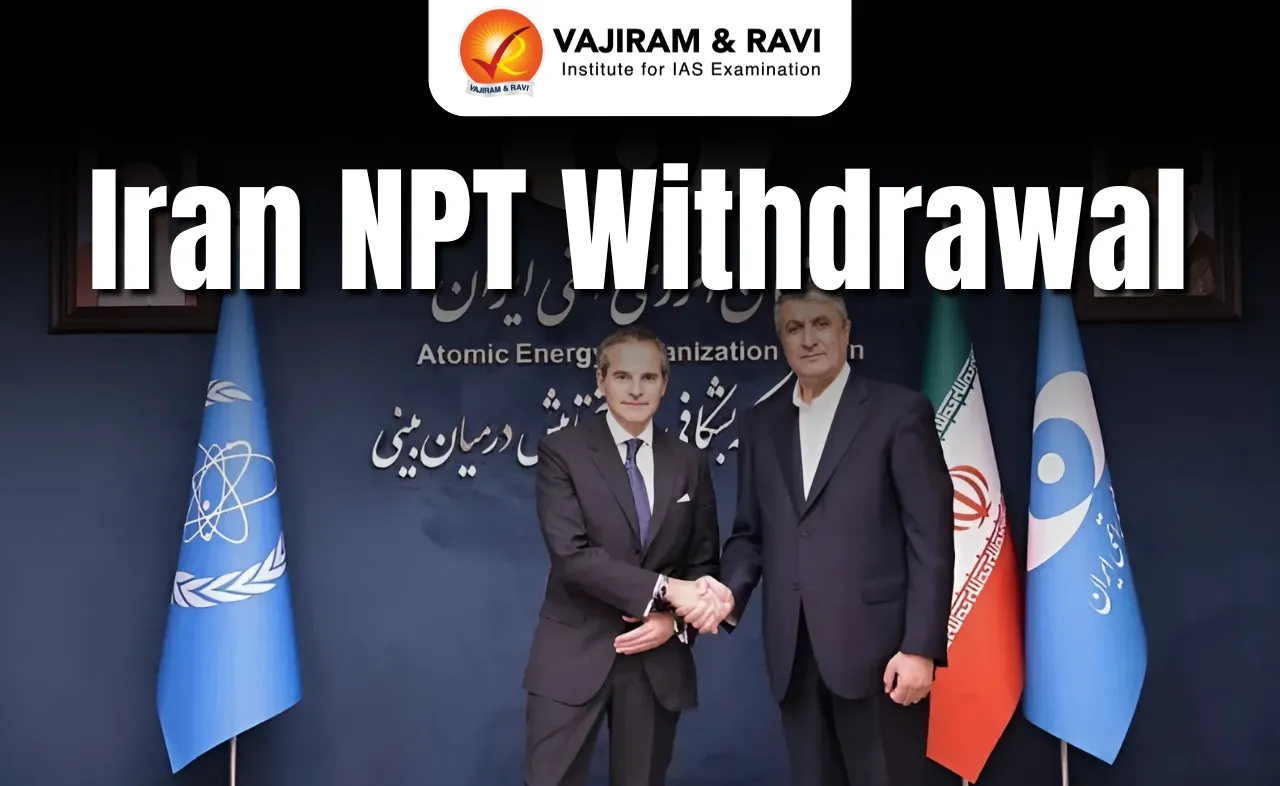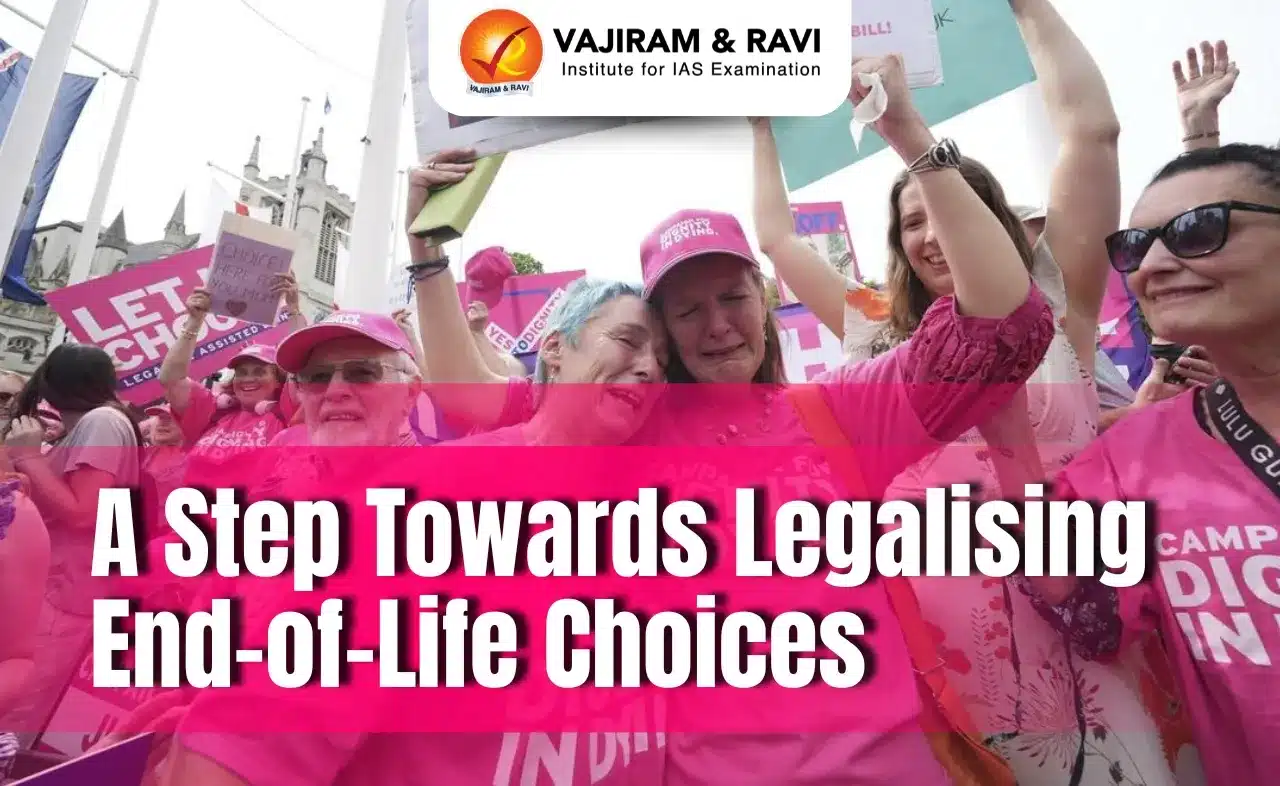What’s in Today’s article?
- Essential religious practices Latest News
- Essential Religious Practices Doctrine
- Essential Religious Practices Overview
- Key Features
- Historical Context
- Notable Examples
- Bombay HC on Loudspeaker Use
- Court Observations
- Case Background
- Key Directives
- Essential religious practices FAQs
Essential Religious Practices Latest News
- Observing that the use of loudspeakers is not an essential part of any religion, Bombay high court directed the state to curb noise pollution by places of worship, irrespective of religion.
Essential Religious Practices Doctrine
- The essential religious practices (ERP) doctrine governs which religious practices are protected under Arts. 25 & 26 of the Constitution.
Essential Religious Practices Overview
- The doctrine is a legal framework created by the Supreme Court to balance the competing interests of freedom of religion and the state’s ability to regulate practices.
- It protects only those religious practices that are deemed essential to a particular religion.
Key Features
- Freedom of Religion: The doctrine protects practices that are essential to a religion, under the freedom of religion provisions in the Indian Constitution.
- State’s Role in Social Reforms: The doctrine allows the state to implement social reforms without infringing on essential religious practices.
- Bifurcation of Practices: It distinguishes between essential and non-essential religious practices, offering protection only to those considered essential.
Historical Context
- First Articulation: The doctrine was first articulated in the 1954 case The Commissioner, Hindu Religious Endowments, Madras v. Sri Lakshmindra Thirtha Swamiar of Sri Shirur Mutt.
- Criticism: The application of the doctrine has been criticized for being inconsistent and incoherent.
Notable Examples
- The Durgah Committee, Ajmer v. Syed Hussain Ali (1961): The court ruled that only practices that are essential and integral to a religion are protected.
- Ismail Faruqui v. Union of India (1994): The court ruled that a mosque is not an essential practice for the religion of Islam.
Bombay HC on Loudspeaker Use
- In a significant ruling, the Bombay High Court has declared that the use of loudspeakers is not an essential practice of any religion.

Court Observations
- Loudspeaker use is not an essential part of any religion and is not protected under Article 25 (freedom of religion).
- Noise pollution is a public health hazard and should be strictly controlled to safeguard citizens’ rights.
- Law enforcement must ensure compliance with noise regulations and avoid being passive in such cases.
Case Background
- Residents of Nehru Nagar, Kurla East, filed a plea citing noise pollution by religious places beyond permissible decibel limits and hours.
- Permissible limits: 55 decibels (daytime) and 45 decibels (nighttime) in residential areas.
- Complaints to local police stations were ignored, leading to the petition in the Bombay High Court.
Key Directives
- Police must measure decibel levels using mobile applications and seize equipment violating noise norms.
- Initial violations should result in warnings; repeated offenses may lead to fines, equipment seizure, and license cancellation.
- Police must ensure complainant anonymity to prevent retaliation.
Essential Religious Practices FAQs
Q1. What is the doctrine of essential religious practice (ERP)?
Ans. The ERP doctrine protects only religious practices deemed essential under Articles 25 and 26 of the Constitution.
Q2. What was Shirur Mutt’s case?
Ans. The 1954 case defined essential religious practices, ruling that only integral practices are protected under the Constitution.
Q3. What is the case of Seshammal in 1972?
Ans. The 1972 case addressed the practice of wearing a veil, ruling it wasn’t essential to Hinduism.
Q4. Is hijab an essential religious practice?
Ans. The hijab’s status as an essential religious practice remains debated, with courts examining its religious significance and public order implications.
Q5. What is Article 25?
Ans. Article 25 guarantees freedom of conscience and the right to freely practice, profess, and propagate religion in India.
Last updated on June, 2025
→ UPSC Notification 2025 was released on 22nd January 2025.
→ UPSC Prelims Result 2025 is out now for the CSE held on 25 May 2025.
→ UPSC Prelims Question Paper 2025 and Unofficial Prelims Answer Key 2025 are available now.
→ UPSC Calendar 2026 is released on 15th May, 2025.
→ The UPSC Vacancy 2025 were released 1129, out of which 979 were for UPSC CSE and remaining 150 are for UPSC IFoS.
→ UPSC Mains 2025 will be conducted on 22nd August 2025.
→ UPSC Prelims 2026 will be conducted on 24th May, 2026 & UPSC Mains 2026 will be conducted on 21st August 2026.
→ The UPSC Selection Process is of 3 stages-Prelims, Mains and Interview.
→ UPSC Result 2024 is released with latest UPSC Marksheet 2024. Check Now!
→ UPSC Toppers List 2024 is released now. Shakti Dubey is UPSC AIR 1 2024 Topper.
→ Also check Best IAS Coaching in Delhi























